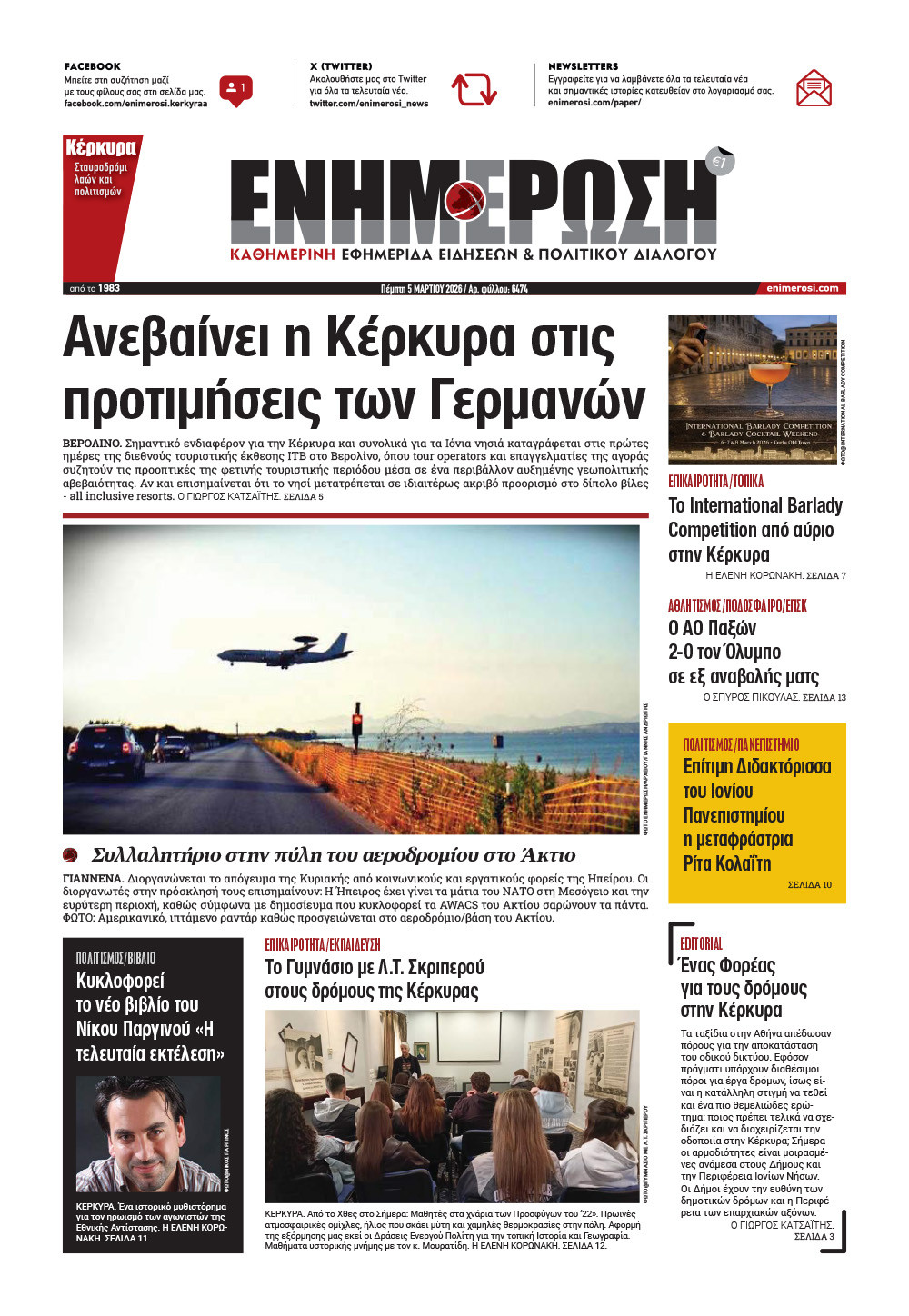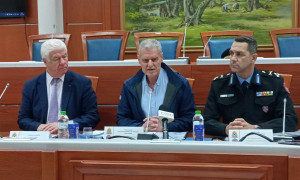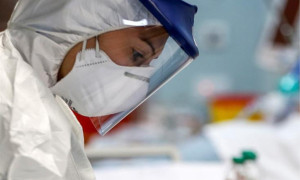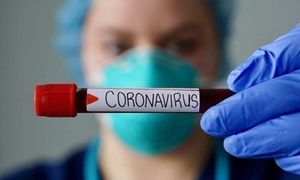The Government has a lockdown plan ready for use if needed
 Photo: EUROKINISSI
Photo: EUROKINISSI
coronavirus
22 Mar 2020
/ 10:31
ATHENS. See how the ban on movement will be implemented and how the Health System will handle the need for beds and personnel.
The Civil Protection Ministry has emergency plans ready to be implemented if there is a sharp increase in the number of coronavirus cases. These plans are confidential - and it is hope that they won't need to be used. The responsible services are obliged, however, to have these plans drawn up so that there can be an organised response from the state in the worst case scenario. The first measure being looked at in the case of 'escalation' is a movement ban.
"If we need to enforce a complete ban on movement, we will do it," said the Government spokesman Stelios Petsas on Saturday 21st. The Civil Protection & Crisis Management Deputy Minister Nikos Hardalias said the same and added: "The hard part is still ahead of us and it is stupidity to go to the beaches and villages." Police patrol cars in many parts of the country are on the streets broadcasting public messages to people to stop gathering together.
In drawing up the plan examples from other countries such as China, South Korea, France and Italy were looked. The implementation of the plans is not just dependent on the sharp rise in cases but also on people's behaviour and adherence to the measures that are already in place.
If the Government does decide on a movement ban, there will be a detailed explanation of how it will be implemented. All non-vital movement will be banned. The instances when movement will be allowed are as follows:
- Travel from home to work if it is not possible to work from home.
- Travel to supermarkets for basic necessities (once a day).
- Travel to and from hospital if there is a need for examinations or hospitalisation.
- Travel needed to help people (such as the elderly) who live alone and need help for their basic necessities.
- Short-distance travel from the home for exercise or the needs of pets.
Additionally, all those working in critical sectors are also excepted.
150 reports of violations
The main burden for the implementation of the measures falls on the police, as it did for the ban on gatherings of more than 10 people which came into force last week. In the first few days the police call-centre received 150 calls from members of the public every eight hours reporting violations of the measures. If there is a movement ban, the police will be conducting continuous checks and there will be fines for any violations.
It has also been discussed whether there should be special cards issued to members of the public in order to check their movements. Authoritative sources, however, have said that this would only be a "last resort measure as it would violate our individual freedom, affect the public's psychology and destroy the economy".
The emergency plans also include evaluations of the demands on the health system if there is a sharp increase in the spread of the virus:
"According to international data, in a population of 10 million with an estimated percentage of high-risk patients at around 15 - 25% a pandemic would lead to the following:
An increase of around 400,000 - 500,000 patients visiting out-patient departments. An increase in deaths of 1,500 - 7,000 people. An increase in hospitalisation of 4,250 - 16,750 people. If the hospitalised patients are treated with anti-viral medicine, then up to approximately 170,000 doses will be needed."
What would happen in an emergency with the number of beds available?
In the section 'Ways to increase the number of available beds' in the National Pandemic Action Plan it says: "Increase in available beds through reducing regular and non-urgent admissions. Beds in private hospitals made available to public hospitals. Reduction in the number of admissions to private hospitals. Use of beds in armed forces hospitals and recovery units. Conversion of hotels into treatment centres."
As regards personnel, the Ministry of Health estimates that with the new recruitments there is sufficiency. In an emergency situation, however, the section 'Possible sources of medical, nursing and other personnel' says: "If there is a shortage of hospital personnel, the following can be used: medical students, nursing students, nurses registered in nursing associations, specialist doctors registered in regional Medical Associations and National Medical Association, other health professionals such as pharmacists, physiotherapists, volunteers from NGOs in non-medical support services." Hospitals have emergency plans, which were drawn up for the Olympic Games in 2004 and have been updated since then.
Including in the plans is the setting-up of infrastructure and a procedure for monitoring at hospital outpatient departments and primary healthcare units as well as the control of airflow in the air-conditioning system between floors, wards, corridors and Intensive Care Units (given that the virus spreads through moisture).
The Civil Protection General Secretariat also has plans for the quarantining of villages or even towns if necessary, as has already happened in the case of the two villages of Damaskinia and Dragasia in Kozani. The plans include supervision of the quarantine, availability of basic provisions and ensuring the proper functioning of basic infrastructure so that there are no problems with electricity, water and telecommunications.
Source: Ethnos on Sunday
"If we need to enforce a complete ban on movement, we will do it," said the Government spokesman Stelios Petsas on Saturday 21st. The Civil Protection & Crisis Management Deputy Minister Nikos Hardalias said the same and added: "The hard part is still ahead of us and it is stupidity to go to the beaches and villages." Police patrol cars in many parts of the country are on the streets broadcasting public messages to people to stop gathering together.
In drawing up the plan examples from other countries such as China, South Korea, France and Italy were looked. The implementation of the plans is not just dependent on the sharp rise in cases but also on people's behaviour and adherence to the measures that are already in place.
If the Government does decide on a movement ban, there will be a detailed explanation of how it will be implemented. All non-vital movement will be banned. The instances when movement will be allowed are as follows:
- Travel from home to work if it is not possible to work from home.
- Travel to supermarkets for basic necessities (once a day).
- Travel to and from hospital if there is a need for examinations or hospitalisation.
- Travel needed to help people (such as the elderly) who live alone and need help for their basic necessities.
- Short-distance travel from the home for exercise or the needs of pets.
Additionally, all those working in critical sectors are also excepted.
150 reports of violations
The main burden for the implementation of the measures falls on the police, as it did for the ban on gatherings of more than 10 people which came into force last week. In the first few days the police call-centre received 150 calls from members of the public every eight hours reporting violations of the measures. If there is a movement ban, the police will be conducting continuous checks and there will be fines for any violations.
It has also been discussed whether there should be special cards issued to members of the public in order to check their movements. Authoritative sources, however, have said that this would only be a "last resort measure as it would violate our individual freedom, affect the public's psychology and destroy the economy".
The emergency plans also include evaluations of the demands on the health system if there is a sharp increase in the spread of the virus:
"According to international data, in a population of 10 million with an estimated percentage of high-risk patients at around 15 - 25% a pandemic would lead to the following:
An increase of around 400,000 - 500,000 patients visiting out-patient departments. An increase in deaths of 1,500 - 7,000 people. An increase in hospitalisation of 4,250 - 16,750 people. If the hospitalised patients are treated with anti-viral medicine, then up to approximately 170,000 doses will be needed."
What would happen in an emergency with the number of beds available?
In the section 'Ways to increase the number of available beds' in the National Pandemic Action Plan it says: "Increase in available beds through reducing regular and non-urgent admissions. Beds in private hospitals made available to public hospitals. Reduction in the number of admissions to private hospitals. Use of beds in armed forces hospitals and recovery units. Conversion of hotels into treatment centres."
As regards personnel, the Ministry of Health estimates that with the new recruitments there is sufficiency. In an emergency situation, however, the section 'Possible sources of medical, nursing and other personnel' says: "If there is a shortage of hospital personnel, the following can be used: medical students, nursing students, nurses registered in nursing associations, specialist doctors registered in regional Medical Associations and National Medical Association, other health professionals such as pharmacists, physiotherapists, volunteers from NGOs in non-medical support services." Hospitals have emergency plans, which were drawn up for the Olympic Games in 2004 and have been updated since then.
Including in the plans is the setting-up of infrastructure and a procedure for monitoring at hospital outpatient departments and primary healthcare units as well as the control of airflow in the air-conditioning system between floors, wards, corridors and Intensive Care Units (given that the virus spreads through moisture).
The Civil Protection General Secretariat also has plans for the quarantining of villages or even towns if necessary, as has already happened in the case of the two villages of Damaskinia and Dragasia in Kozani. The plans include supervision of the quarantine, availability of basic provisions and ensuring the proper functioning of basic infrastructure so that there are no problems with electricity, water and telecommunications.
Source: Ethnos on Sunday












